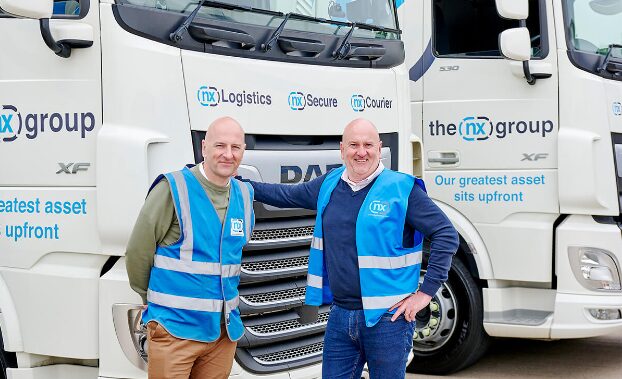The logistics and transportation choices you make can make or break your operations. Whether you’re shipping products across borders or managing domestic deliveries, the right logistics partner can help you:
- Streamline operations
- Reduce costs
- Maintain customer satisfaction
Nevertheless, with so many providers offering similar services, how do you choose the one that truly fits your business needs?
This thenxgroup.com article breaks down the key factors you should consider when evaluating logistics partners. It also highlights potential red flags and offers practical steps to build a long-term, reliable relationship.
Why You Need to Choose the Right Logistics Partner?
Logistics sits at the heart of your supply chain. A reliable partner ensures smooth operations, timely deliveries, and cost efficiencies that directly affect your bottom line.
Meanwhile, selecting the wrong provider can lead to costly delays, hidden fees, dissatisfied customers, and reputational damage. If you’re aiming to scale or maintain consistent service levels, the logistics partner you choose is more than a vendor. It’s a strategic extension of your business.
Key Criteria for Selecting a Logistics Partner
-
Industry Expertise and Experience
Your logistics partner should understand the unique challenges of your industry. For instance, e-commerce businesses may require last-mile delivery expertise, while manufacturers might need bulk freight and warehousing solutions. A partner with sector-specific experience will anticipate problems before they occur and offer solutions specific to your business model.
-
Service Portfolio and Flexibility
A strong logistics partner goes beyond basic transportation. Look for partners who can offer a range of services, such as:
- Warehousing
- Customs clearance
- Inventory management
- Last-mile delivery
Flexibility is equally important. Can they scale up during peak seasons? Can they adapt as your product range or markets evolve?
-
Technology and Innovation
Technology is no longer optional in logistics. Real-time tracking, automated notifications, and advanced analytics tools can improve your visibility and efficiency. Choose a partner that invests in technology to streamline your operations while enhancing your customer trust.
-
Financial Stability and Reputation
The financial health of your provider matters. A partner facing instability may cut corners or fail to deliver on commitments. You can conduct research on their reputation, read customer reviews, and ask for references. Longevity and positive case studies are indicators of reliability.
Evaluate Their Customer Service and Communication
Even the most advanced logistics providers are only as good as their customer service. Delays, customs issues, and weather disruptions will happen. What matters is how quickly and effectively your partner communicates and resolves problems.
-
Responsiveness and Problem-Solving
Look for signs of proactive communication. Does the provider offer a single point of contact? Do they provide updates before you ask for them? Providers who respond quickly during crises can prevent small issues from escalating into major setbacks.
-
Relationship Management
You want a partner who views the relationship as a collaboration rather than a simple transaction. Providers who invest time in understanding your goals and supply chain priorities will deliver you more consistent long-term results.
Questions to Ask a Potential Logistics Partner
Before making your decision, prepare a set of targeted questions to learn how well the provider aligns with your needs:
- What industries do you specialise in?
- How do you handle disruptions or unexpected delays?
- Can you provide client references or case studies?
- What technology platforms do you use for tracking and reporting?
- How do you structure pricing, and are there potential hidden fees?
Asking these questions upfront helps you compare providers fairly and avoid costly surprises later.
Red Flags to Watch Out For
Not all logistics providers deliver on their promises. Here are warning signs to consider during the evaluation process:
- Overpromising capabilities: If a provider claims they can do everything perfectly without showing evidence, proceed with caution.
- Lack of transparency in pricing: Hidden surcharges or unclear cost structures can erode your margins.
- Negative customer reviews: A pattern of complaints about late deliveries or poor service is a red flag.
- Limited service offering: A provider without scalable options may struggle as your business grows.
Spotting these issues early can save your business time, money, and frustration.
Build a Long-Term Partnership
Once you’ve selected a logistics partner, the real work begins. A successful partnership requires ongoing evaluation and collaboration.
-
Continuous Performance Evaluation
Set measurable key performance indicators (KPIs) such as on-time delivery rate, accuracy in order fulfillment, and cost efficiency. Check these metrics to ensure the provider is meeting agreed standards.
-
Collaborative Growth and Shared Goals
Treat your logistics partner as part of your strategic team. Share your growth plans and involve them in forecasting discussions. Providers that understand your long-term vision can align resources and capabilities to support your expansion.
Conclusion
Choose a suitable logistics partner to ensure your efficiency, reduce risk, and support your long-term growth. The right provider can do more than move goods. They provide stability, scalability, and confidence in your supply chain.
By carefully evaluating experience, services, technology, customer service, and red flags, you can make an informed decision. This will ultimately benefit both your business and your customers.
Are you ready to take the next step? Begin evaluating logistics providers today to find a partner that aligns with your business goals.



































